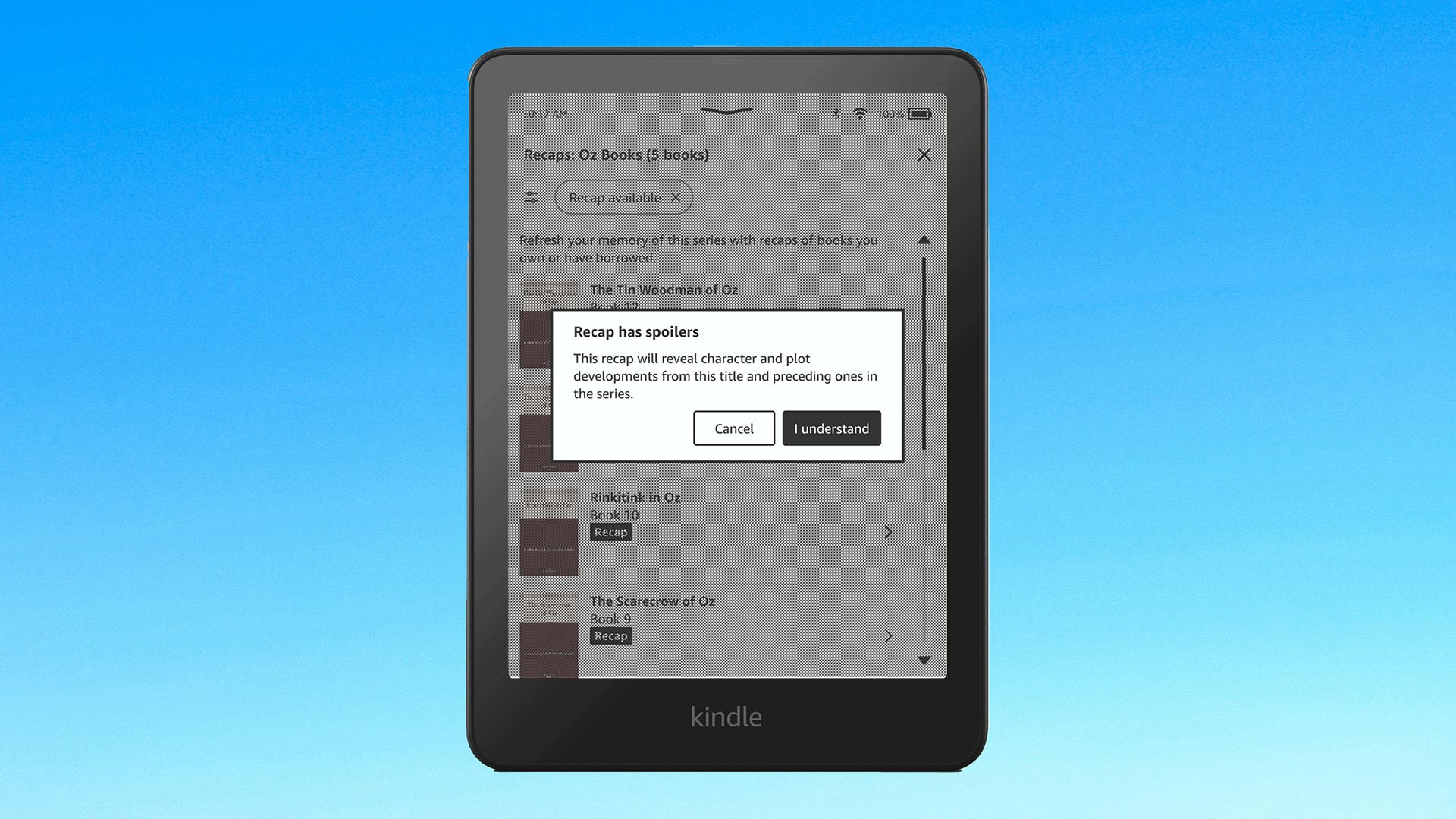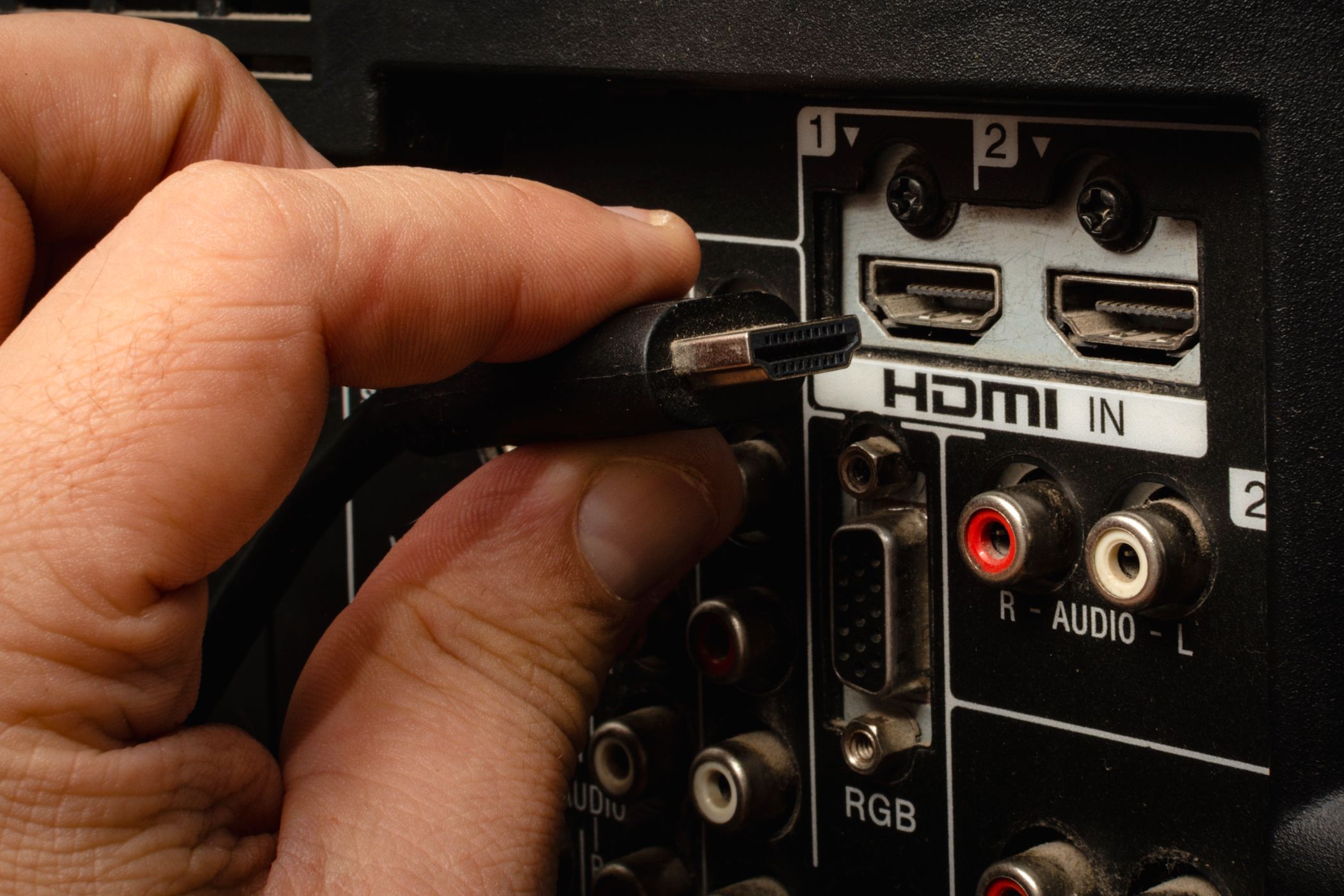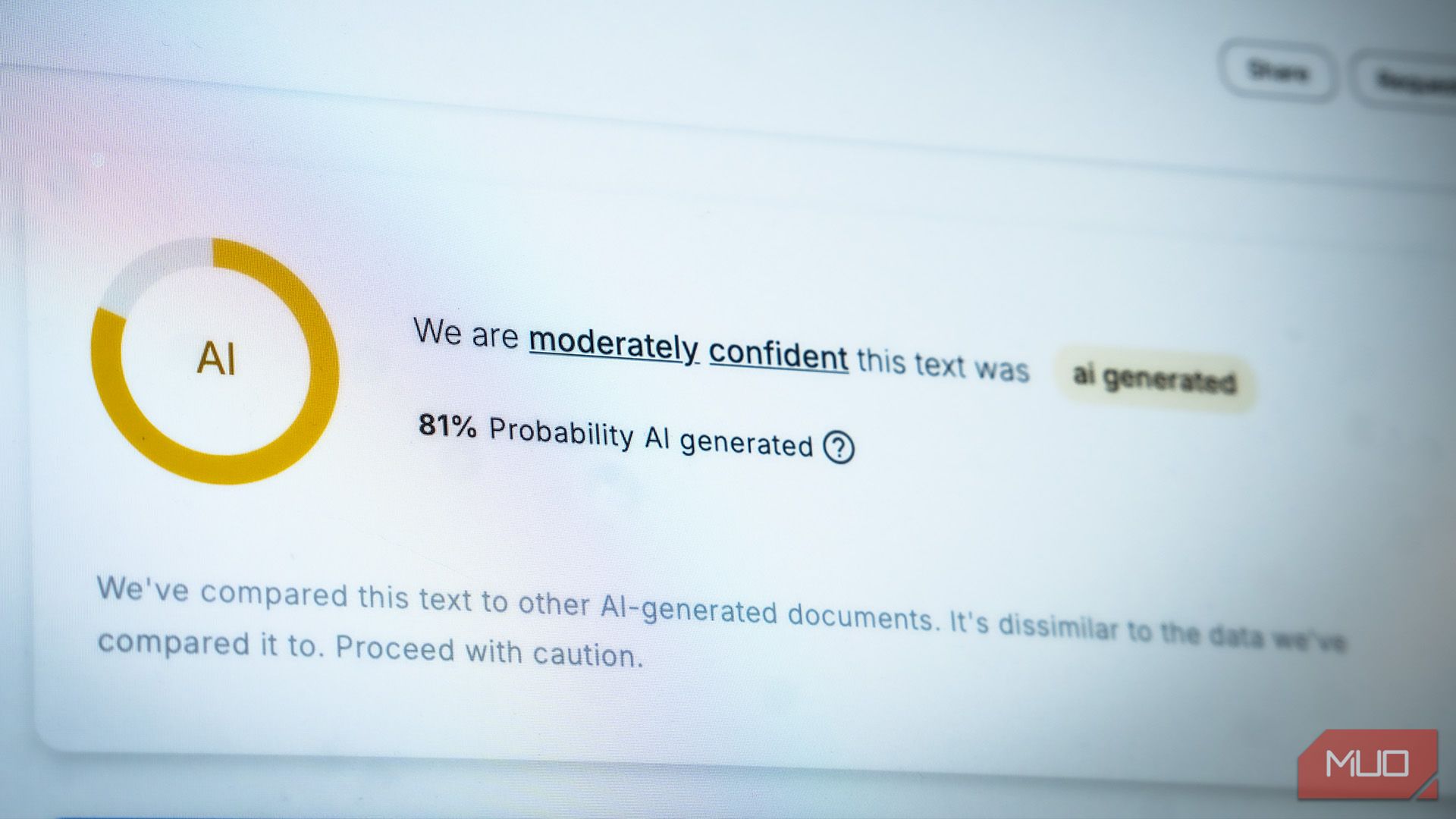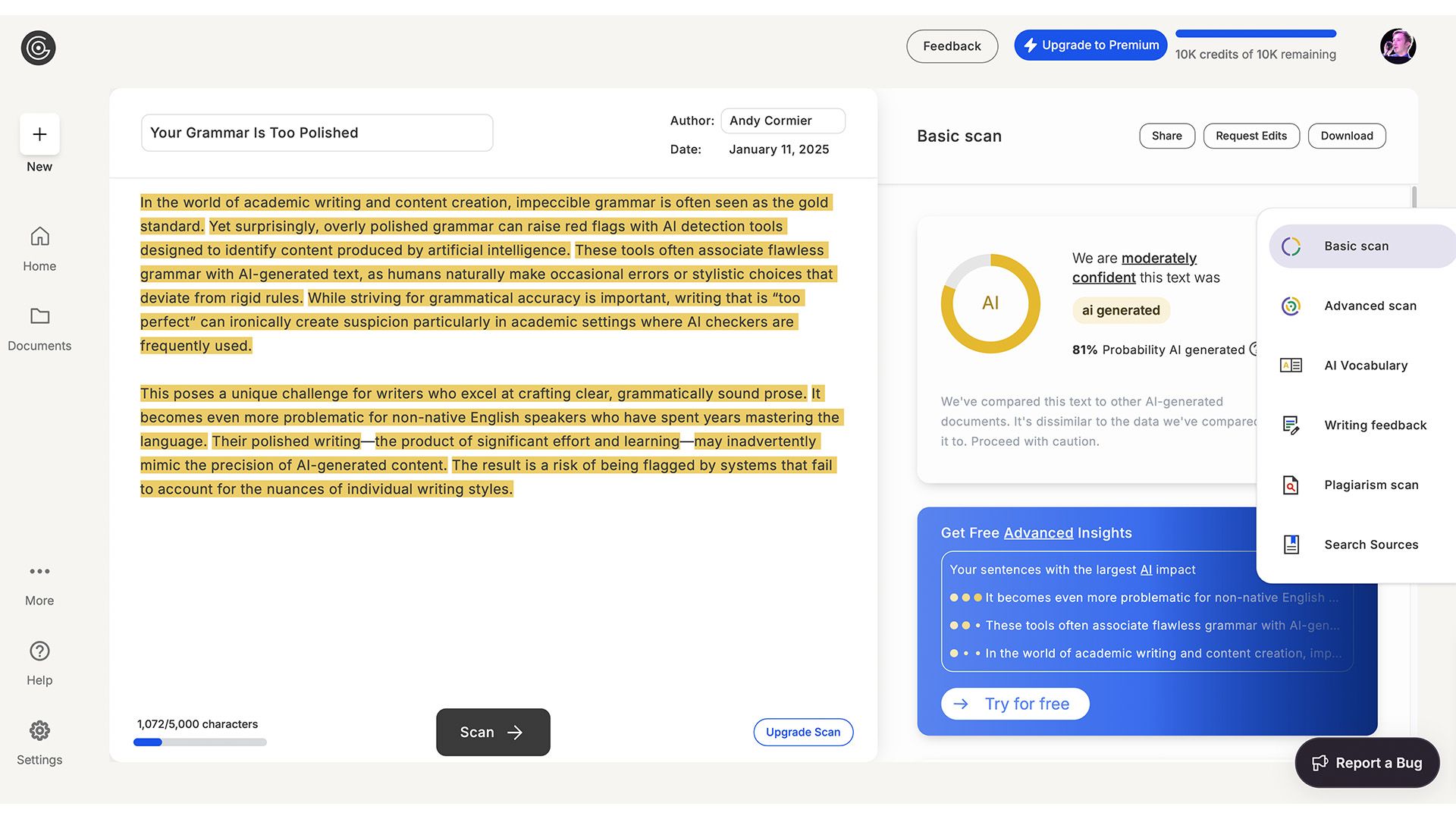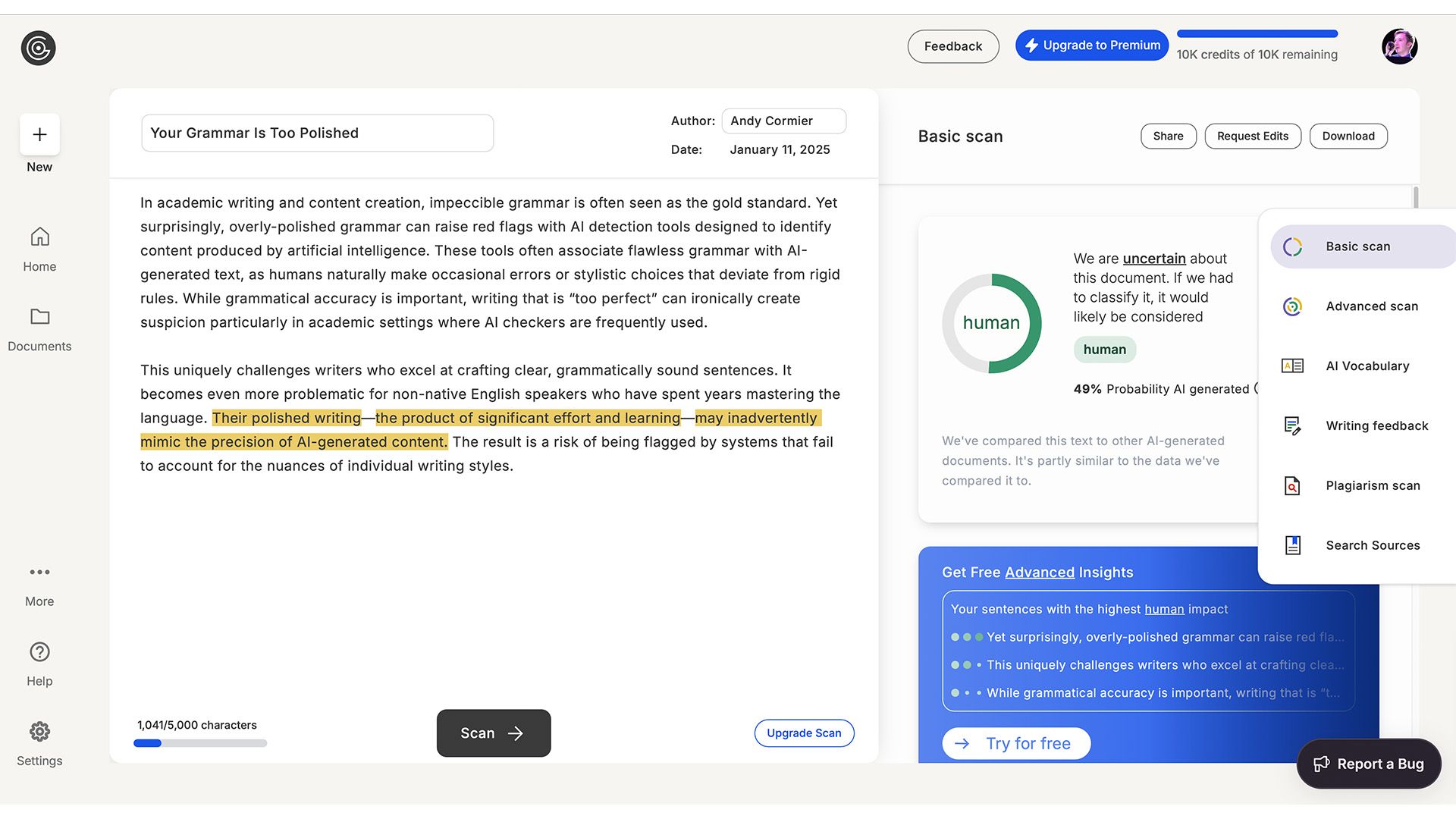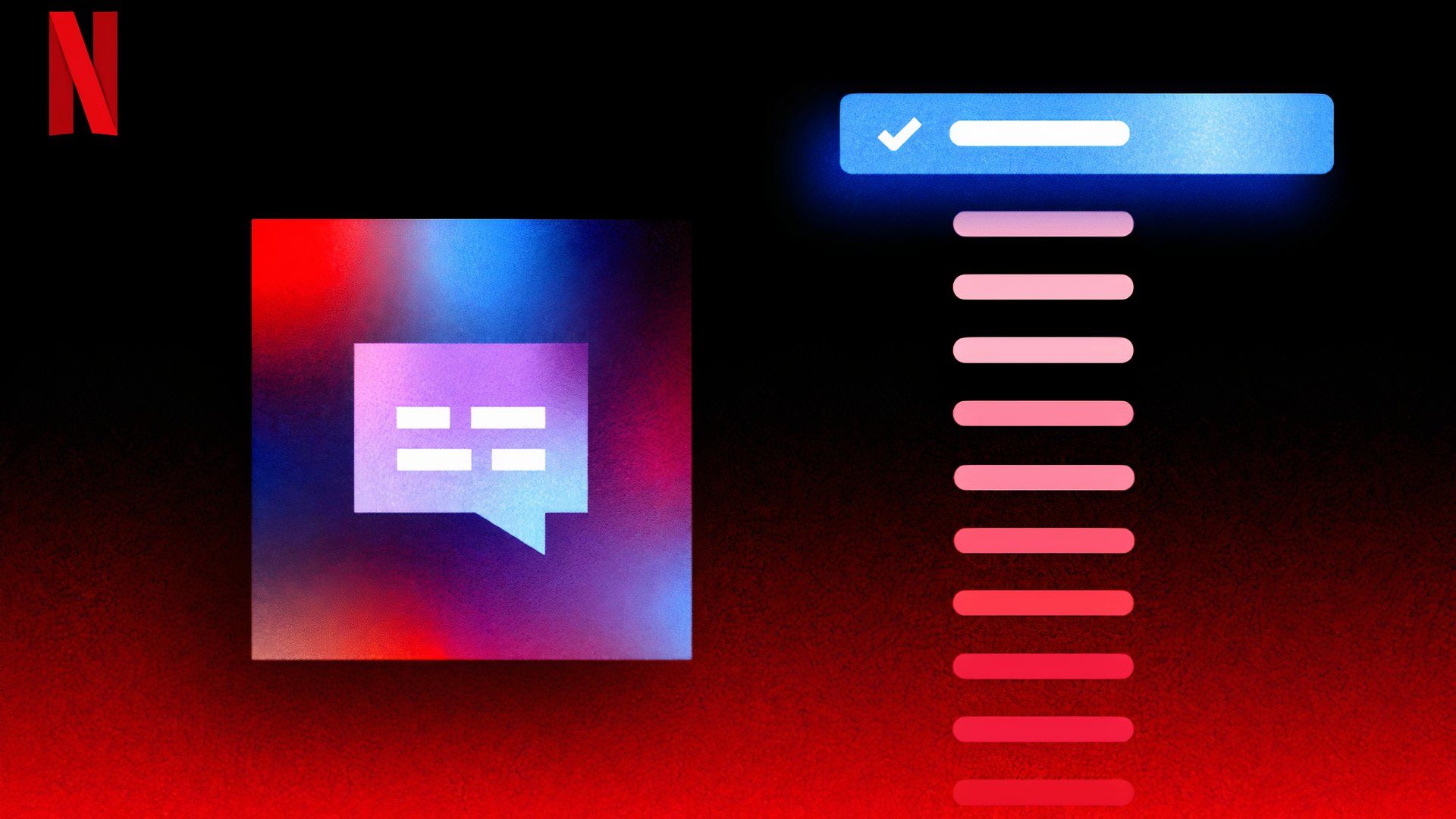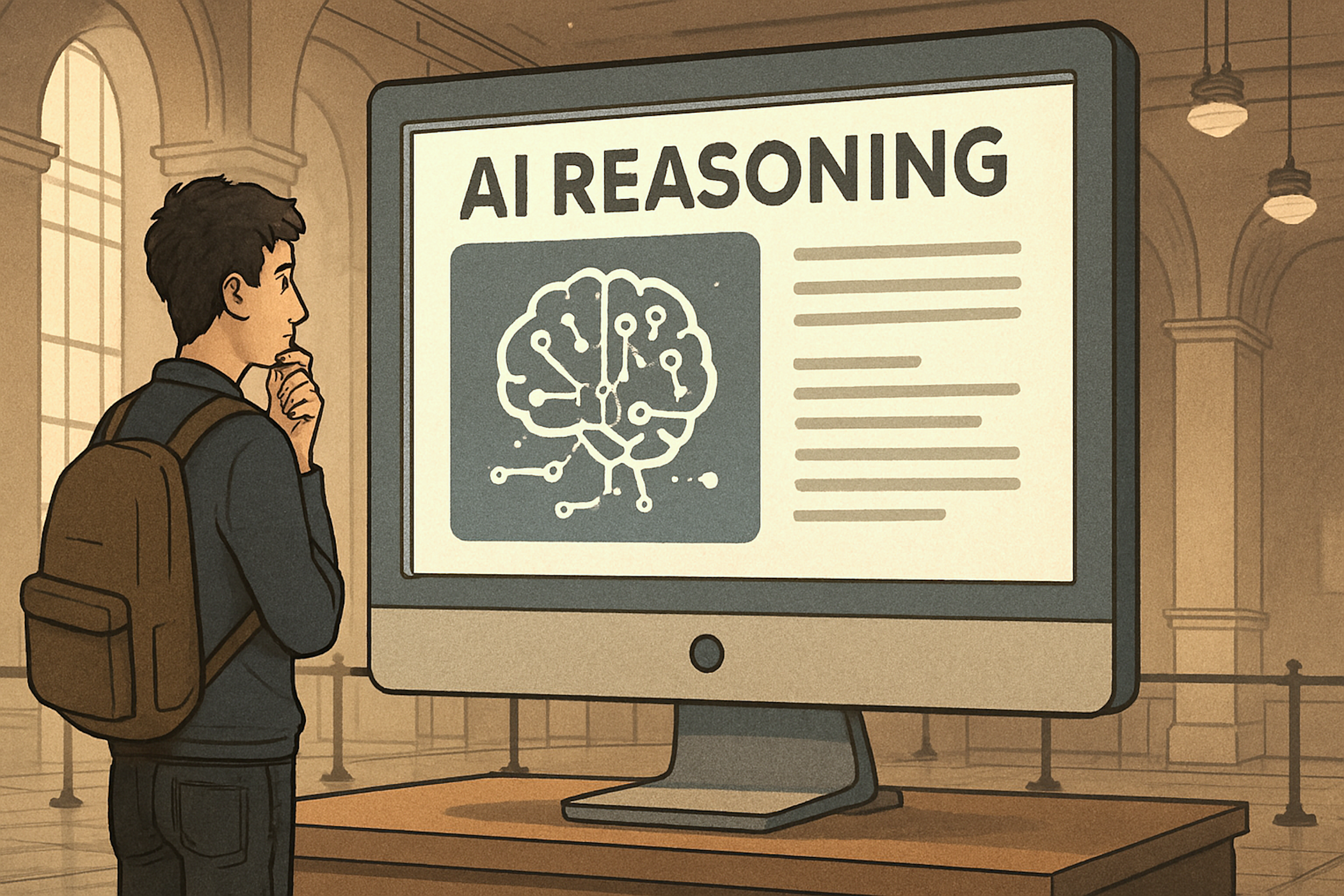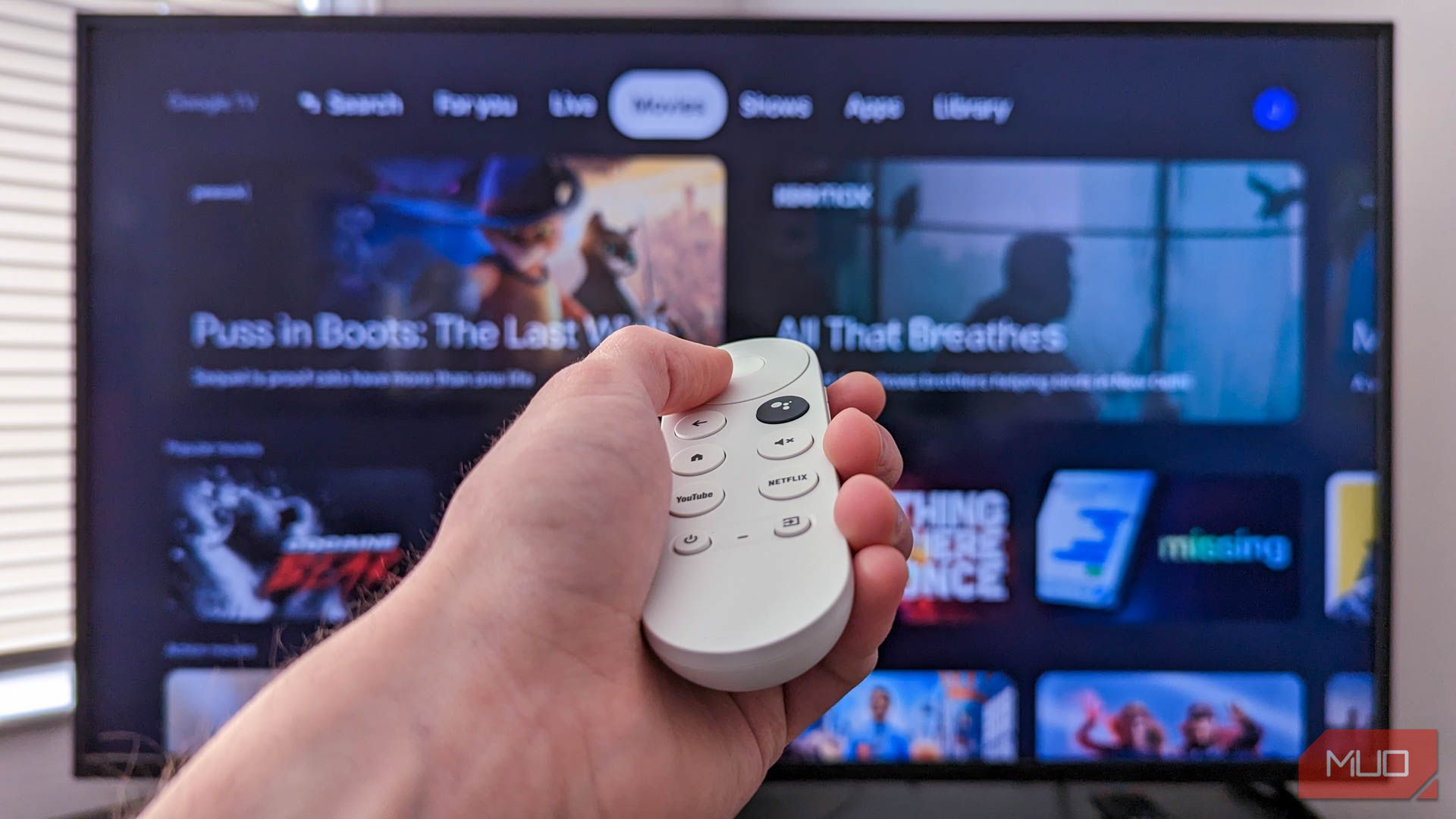Summary
- Perfect grammar & certain word choices can trigger AI flags
- Second-language English speakers may be the most vulnerable
- Using writing assistants can raise suspicions if overused
Tools to check AI writing are notoriously bad. They regularly flag human-written pieces for reasons like grammar, word choice, and style, leading to huge issues for students and others who rely on the written word.
So, if AI writing detection tools are constantly picking up your writing, here’s why—and how you can fix it.
Your Grammar Is Too Polished
One of the ways AI checkers flag AI-generated writing is the level of polish in grammar, as well as whether the writing primarily uses standard or common sentence structures. Theoretically, AI does not make grammatical mistakes, yet even the best human writers can make minor errors when writing. Similarly, if your writing takes few stylistic risks and becomes grammatically generic, this lacks a personal writing style, which can trigger AI writing detectors.
To illustrate, below, I have a piece written by ChatGPT based on this article pasted into GPTZero, and it’s flagged with an extremely high chance of being written by AI at 100%.
If I introduce a few small grammatical errors by deleting some commas and introducing a typo, with a couple of small stylistic changes, the GPTZero score drops significantly to 81%.
You Use Common Words AI Uses
When we read a piece of writing, many of us have developed an intuitive sense of whether it was written by AI, such as fluffy paragraphs and words AI frequently uses, such as “delve,” “highlight,” “underscore,” “pose,” “the world of,” “strive,” and a myriad of other words and phrases. This is evident as seen with the dramatic increase of the word “delve” used in academic research papers in 2023, coinciding with the release of ChatGPT.
Using the same text as the previous example, if I make a few small changes to the biggest AI-red-flag segments, the GPTZero score decreases even further to 49%—a score deemed “human,” though not one that would escape academic scrutiny. Evidently, AI checkers can be easily fooled with just a few small edits, which is one of many examples highlighting their ineffectiveness.
I have spent considerable time working as a writing tutor, and I’ve noticed that my students who speak English as a second language complain more often about receiving false positives on AI checkers. When creating large language models, AI companies often outsource data annotation to countries where English is a common second language. Therefore, some words we associate with AI writing, such as “delve,” may result from data annotation being performed by English second-language speakers who use these words in their vocabulary.
This compounds on top of how many people who become fluent in English as a second language often know and understand grammar rules better than native speakers who take a more intuitive approach. Consequently, second-language English speakers can face double jeopardy with false positives on AI checkers because of their proper grammar and vocabulary choices.
Using AI Writing Assistants Can Trigger It
Both issues above can be seen even without the use of a generative AI tool. If you make an earnest attempt at original writing and use writing assistant tools like Grammarly, your writing is more likely to be flagged as written by AI. This is certainly a gray area in academia, as these tools generally are technically generative AI assistants, and students often use them to replace learning rather than as a helpful, supplementary tool.
In my experience tutoring, I find that people who overly rely on Grammarly to fix their writing are most likely to fear AI checkers when submitting their work. When a significant percentage of someone’s text is rewritten by an AI assistant’s suggestions, a large portion of your writing is, in fact, AI-generated. As such, when using tools like Grammarly, be careful if you overly rely on them, and use Grammarly’s suggestions as learning opportunities rather than mindlessly accepting them.
Copying ChatGPT Results Is a True Positive
Last and most obviously, if you actually use ChatGPT and do next to nothing to revise its output, AI checkers will almost certainly flag you; this isn’t a false positive. However, even if you earnestly attempt to write fully original, unassisted work, the impeccable grammar and certain vocabulary and phrasing choices could leave you with a false positive flag.
